Welcome to this, the first blog on my new website. I have decided that it was about time I updated my site and I have switched to click-it to do this, so here goes, I hope you like it..
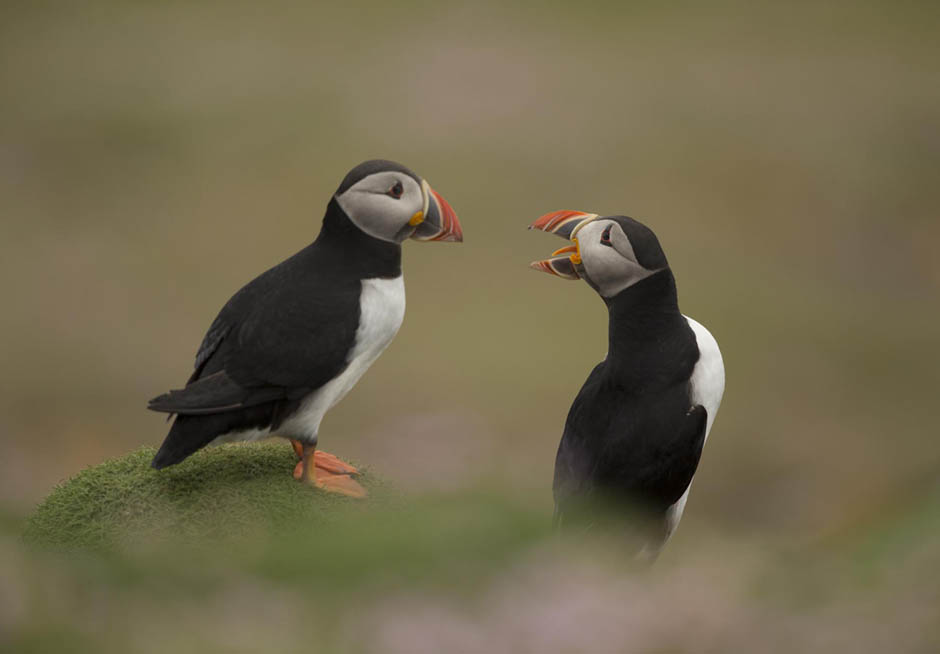
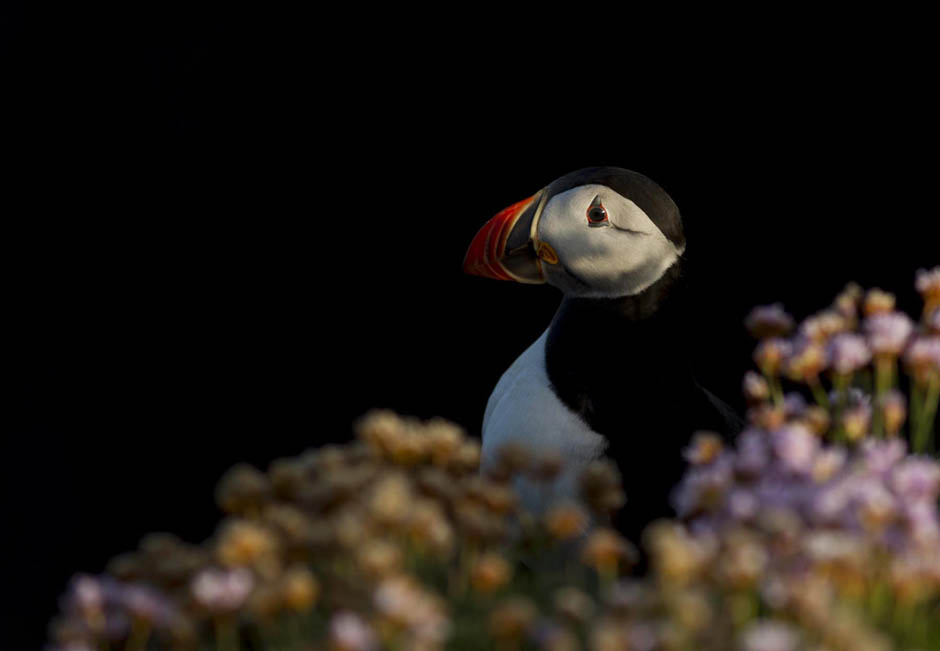
Since my last blog, which was months ago I have travelled quite a lot and built up a lot of new material. I have though decided that I would make the topic of this first blog about my last trip to Fair Isle with Nature’s Images. I co-led this week long trip with Danny and we had decided that we would offer a trip with one focus point only – puffins. Our idea was really to copy how both of us work naturally in the field which is by concentrating on one animal or bird for a length of time.
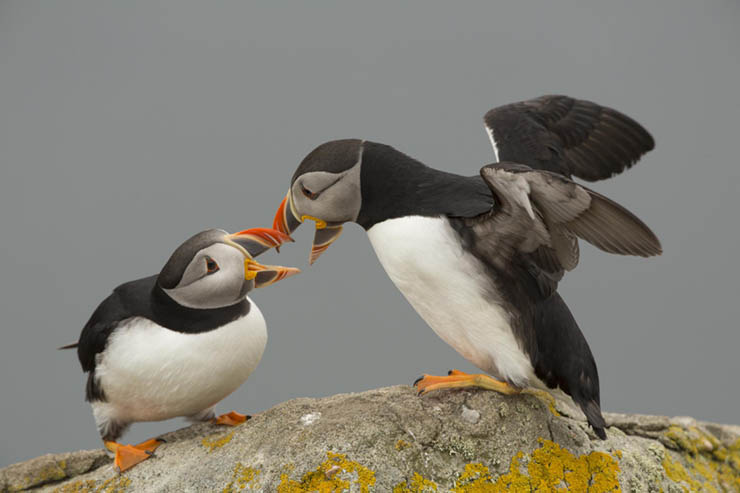
It may seem boring at times but we believe that our best work comes from creating an intimacy and understanding of our subjects. This only comes from sharing time with the puffin’s and witnessing their behaviours, quirks and patterns over days. This closeness drives creativity and allows time to explore ideas. When you have the straight forward stock images in the bag you start to relax, slow down and this is often when your best work flows.
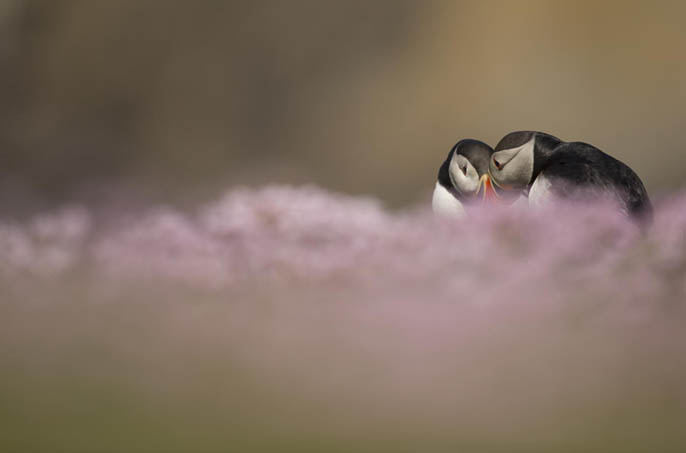
We spent all of each day at one or two small colonies near to our accommodation at the Observatory. Both colonies were in beautiful settings, short cropped grass be-jewelled with sea-pink. The photo-opportunities were stunning.
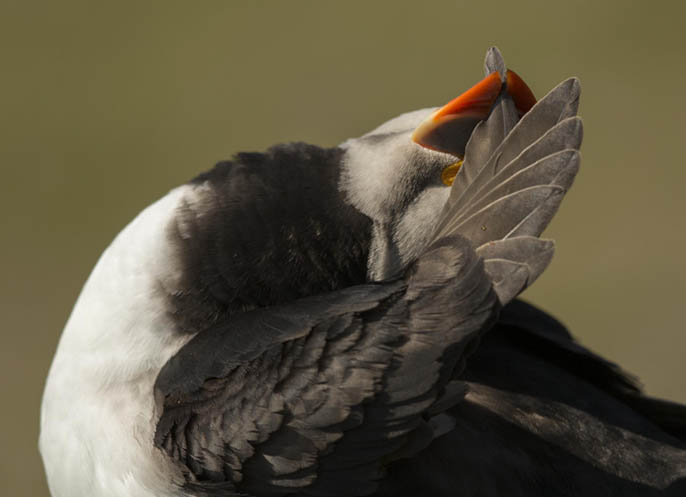
It was however really sad to witness the demise of Britain’s sea bird fortunes first hand. Where as some puffin colonies in the south, the Farnes perhaps have seen an increase in numbers those in the far north, alongside arctic terns, guillemots, razorbills and kittiwakes are seeing year on year declines. The reasons may be complex though in a nutshell it’s directly linked to a huge reduction in their summer food, sand eels. That is simple enough to understand, the reasons though for this are probably complex and whilst blame is apportioned often here or there, over-fishing, changes in sea temperatures etc the solutions are still a long way away.
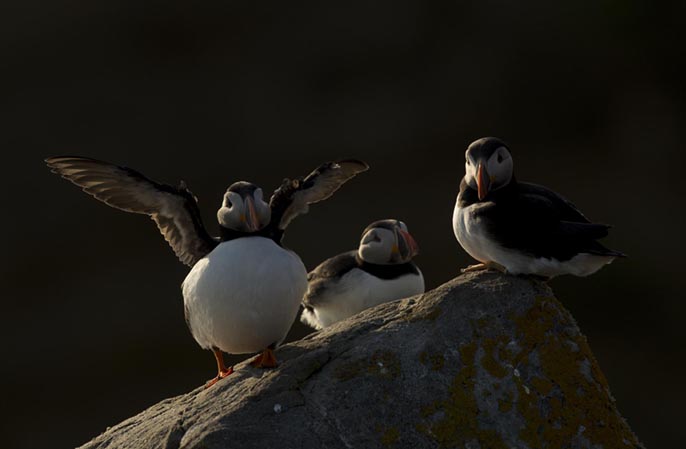
The very recently released report ‘The state of Nature 2013’, ground breaking in its amalgamation of so many organisations research and cooperation highlights an appalling set of wildlife stats - 60% of all species studied are declining, 1 in 10 of these is seriously under threat of disappearing from Britain in the near future. There are some success stories but the over-whelming fact is of serious declines in over half of Britain’s species.
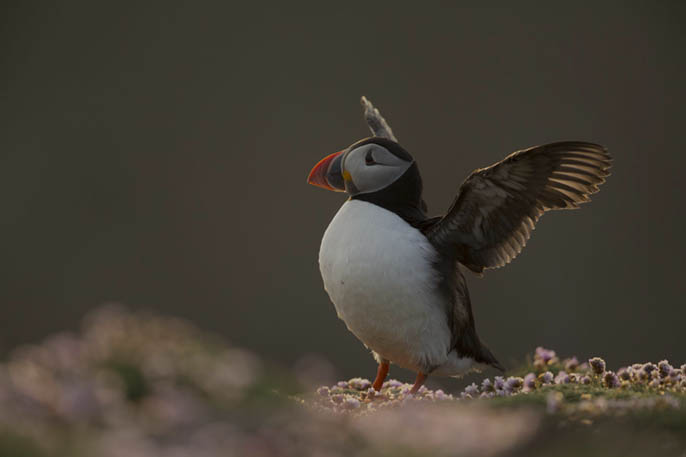
Our trip to Fair Isle was fantastic, the puffins were amazing, we all created a cracking portfolio of quality images, the group gelled really well and we had a good laugh. I can’t wait to return but I will be even more keen to hear that sea bird numbers are starting to rise again, it cannot happen soon enough, and what ever I can do, you can do, we can do, the Government can do ( the weak link!!!!) we must. We can go to these stunning, remote islands and have an amazing experience, and probably still for a few more years, but unless something changes it really will be a FEW more years!
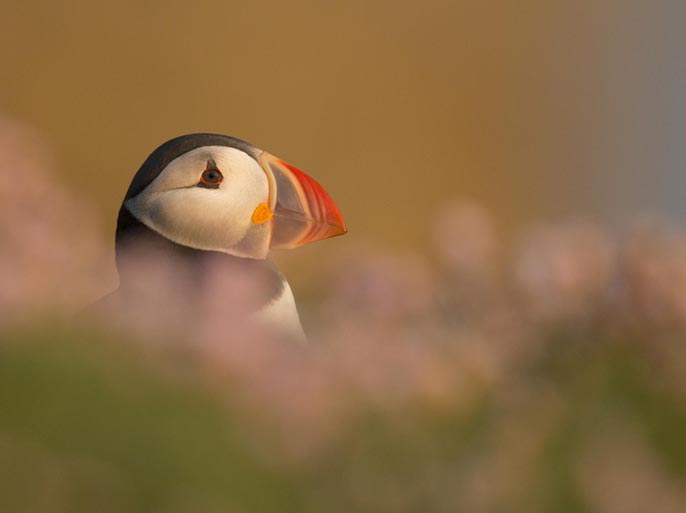
A bit doom and gloom for a first blog but I guess we all do need to start to face up to the realities of the fortunes of our wild species on our own doorstep. We can, and do seem to focus on so many exotics, big, fluffy and often cute, usually from some where hot and steamy, often to the tunes of millions. It’s about time we addressed the imbalance, lets get our own house in order, this is the wildlife we watch, love and live with!
When I read through this blog I noticed a bit of an ommission, its easy for me to say we should all do something but exactly what? On a simple level we can all join organisations that campaign and promote conservation or lobby government. The RSPB, BTO and your local wildlife Trust spring quickly to mind. If you want to go further perhaps Greenpeace and FOE will appeal, as should the National Trust (they manage the Farnes among other important seabird colonies). You can write directly to your MP, she?he should respond and this sort of pressure can produce real results. The disgraceful badger crisis is a good example where pressure on your elected may work. If you want to lend a real hand then practical work is incredibly rewarding. When I was a teacher I ran a weekend conservation group for the students where we spent countless weekends all over N Derbyshire and S Yorks laying hedges, planting trees and reeds in wetlands, cleaning up ponds and river beds and rhoddy bashing. I loved it and at the end of the day you can see a real change that you have personally helped create. Your local WT should be able to help here. There is actually quite a bit that we can all do, both from the armchair or actually getting out and helping directly.
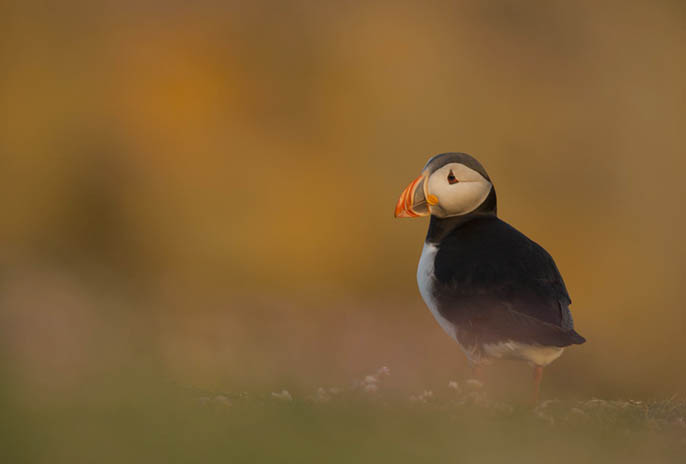
.jpg)

